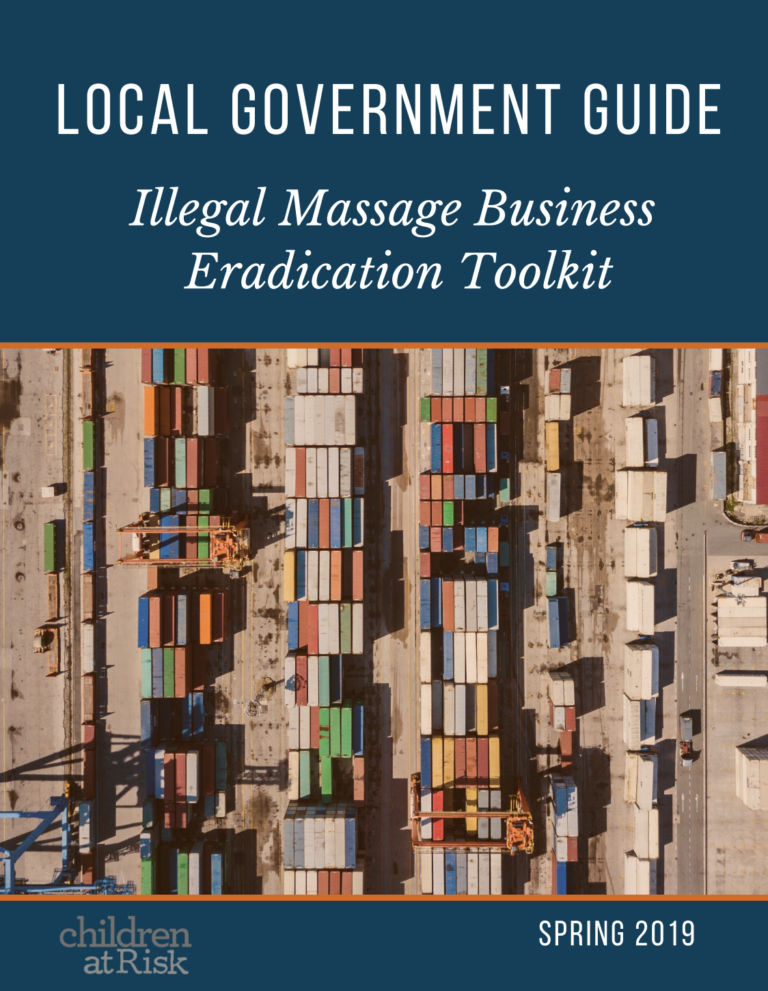Law Enforcement Manual– Illicit Massage Business Toolkit
Illicit Massage Businesses (IMBs) use the cover of a legitimate service to engage in prostitution and often human trafficking, by using force, fraud or coercion to compel the women working there to provide sexual services to the buyers who patronize...

